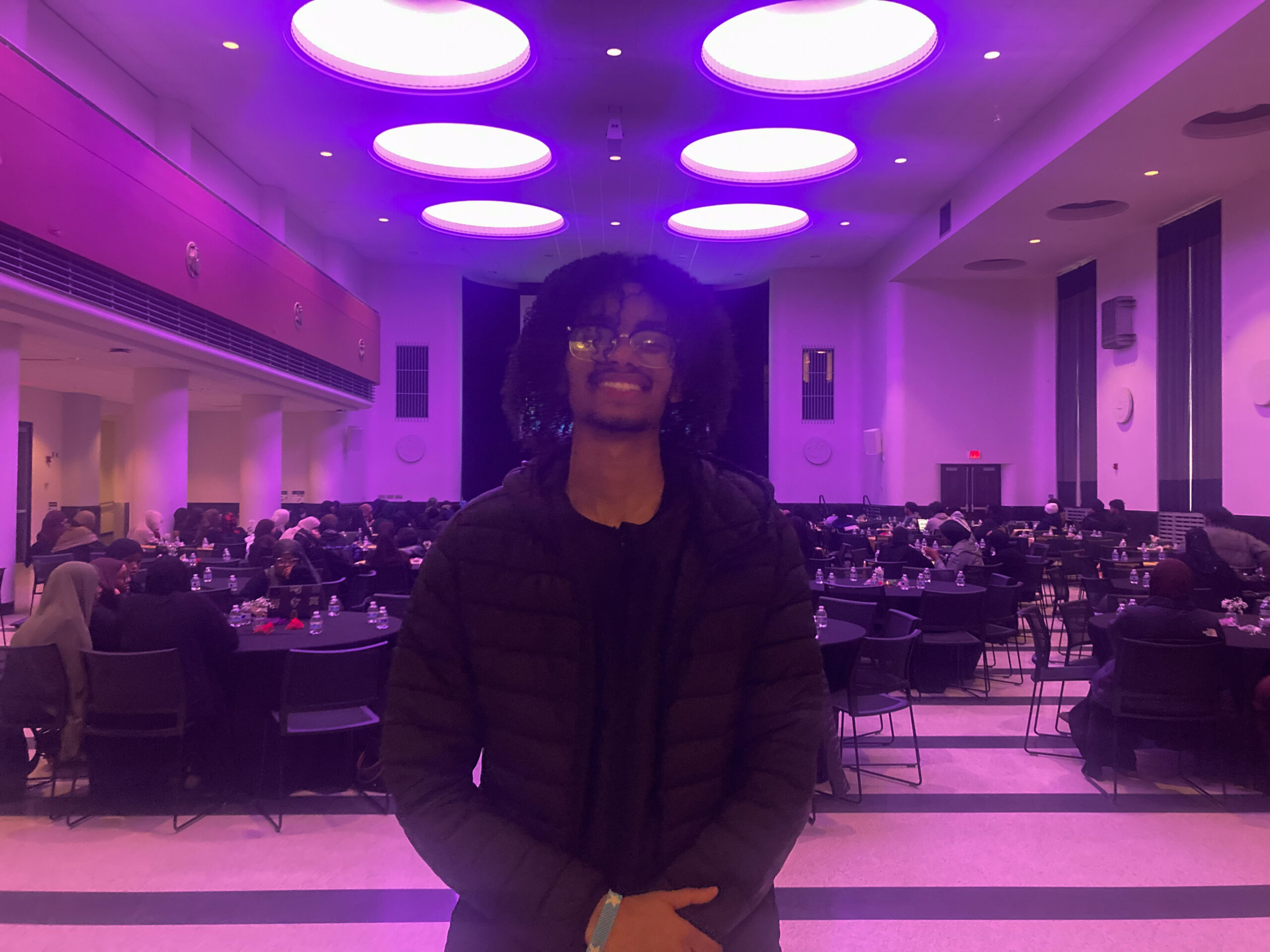Adnan Jeilani talks about his Ramadan experience as a Somali American student.
Byline: By Maya Bell (Writer)
During his first year at the University of Minnesota, Adnan Jeilani struggled to balance school with the obligations of Ramadan.
Confused about how to work in prayer with his academic load, Jeilani and his friends sought guidance from older students. They attended cultural clubs like the Al-Madinah Cultural Center in Coffman Union, where older students practice Islam and go to school.
“We saw everybody praying at the selected time at the scheduled prayer times,” Jeilani said. “And then you kind of watched what others were doing, and how they were dealing with it.”
Ramadan is a Muslim holiday that goes from the beginning to the end of March. During the month, Muslims are meant to fast from sunrise to sunset to reflect on the Quran and God.
Ramadan is based on the Islamic Calendar, which is based on the Lunar Calendar. According to the Islamic Calendar, Ramadan moves 11 days earlier each lunar month.
Now three years later, Jeilani said he has found a good balance between his religious practice and school. He makes sure to communicate with his professors about prayer needs, and through his work with the student-led Somali Student Association, Jeilani wants to help new students learn to balance their experience as well.
The association hosts Iftars, a meal that breaks the fast after sunset. This year, the dinners were on March 14 and March 19.
“Minnesota has the largest Somali population in the U.S. So there’s a lot of specifically Somali students at the University of Minnesota,” Jeilani said. “It’s important to bring that community together to build meaningful connections, celebrate unity, and learn more about our culture.”
Jeilani said helping students balance Ramadan with their academic loads can begin even before the holiday starts.
“We pick classes out way months before Ramadan starts. So you always think about that in the back of your mind,” Jeilani said. “You’re always like, OK, maybe if Ramadan is during the second semester, maybe I can take online courses. Maybe I can figure out some way to make my schedule easier, to make my fasting easier.”
Jeilani is the youngest of five siblings and his parents are from Somalia. When he was 11 years old, Jeilani said he always wanted to celebrate Ramadan with his siblings.
“As a kid, I witnessed all my older siblings and my parents do it. I was very eager as a kid to participate,” Jeilani said. “They wouldn’t allow me to do the full day just for kid development and all that type of stuff. But I would sometimes do a half day,”
The first time Jeilani practiced Ramandan was also the first time he felt connected to his family and his religion.
“I felt a sense of family and a sense of community knowing that I wasn’t alone, knowing that a bunch of other people were doing it with me,” Jeilani said.
Jeilani joined the Somali Student Association in college, serving as the treasurer during his freshman and sophomore year.
This was Jeilani’s first year hosting the iftar night. He added he hopes to do a bigger celebration on campus next year.
“I’ve hosted a little bit before, but that was the first event that was my dedicated role. It was something that I definitely grew as a person by having that experience,” Jeilani said. “I had my fellow board member with me doing it with me and took some pressure off of my shoulders.”
Aside from his responsibilities for the Somali Student Association and classes, Jeilani said Ramadan is something he always looks forward to because it is a way for him to rejuvenate himself and reconnect with his culture and God.
“That is the one month where you don’t think about yourself, but you also think about other people and what other people are going through,” Jeilani said. “As humans, we tend to be very selfish. We tend to only think about ourselves. And this month kind of gives us that time to reflect on ourselves and how we can change to be better people.”

